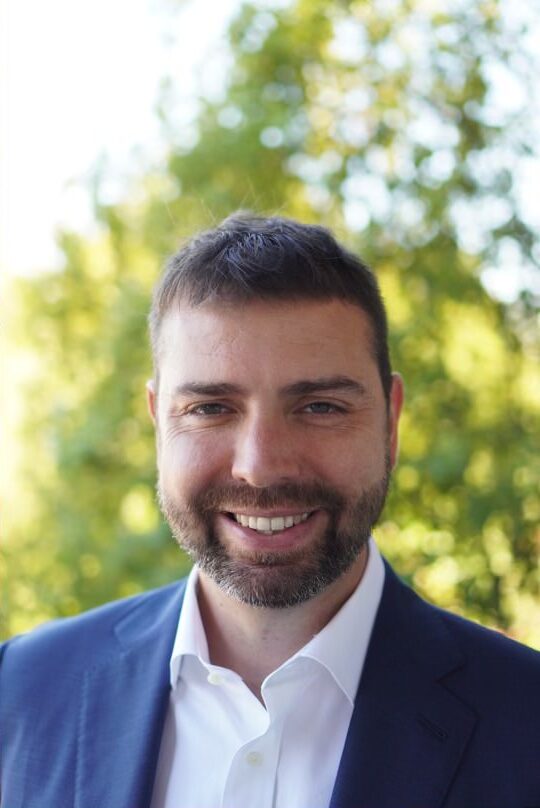Get to Know Social Impact Program Manager: Nick Davidson

This Earth Month we celebrate the men and women who make our Action for Impact and decarbonization of the built environment goals possible. Nick Davidson has been with McKinstry for about two years as a social impact program manager working on our climate initiatives and commitment to reach net zero by 2030.
In the Q&A below, Nick shares his experience with sustainability work, why Earth Day is significant to McKinstry and the construction industry altogether and more!
Learn More About Nick’s Experience
I am a social impact program manager focusing on our carbon climate initiative and goal to reach net zero by 2030. I joined McKinstry in June 2021, so I am coming up on two years here. Prior to McKinstry, I spent 10 years in corporate sustainability consulting work helping different companies with their decarbonization strategies. With this work experience, my skillset and values lined up well with this new role at McKinstry, so when the opportunity came for me to join, I was all in. I feel I joined McKinstry at the perfect time because I was able to take part in the groundwork of our Action for Impact and social impact planning, which has been an awesome experience so far.
Personally, I cannot remember a time when there was not an Earth Day celebration. At McKinstry, one of our core values is making a positive difference by taking care of the planet, and there is no more direct way that you can do that than by thinking about our lasting impacts. Understanding what our McKinstry emissions look like so that we can hold ourselves accountable for our commitments and better understand how each of us can play a role in emission reductions will help ensure we have a healthy, thriving planet for future generations.
Having worked with other companies and helping them set their sustainability goals and timelines, I would say that ours is extremely aggressive and challenging but is something that is rooted deep within the ethos of the company. It’s just not in McKinstry’s DNA to back down from a challenge. Our proposed net zero strategies have not been done before by a building and construction company like us, so we do not have a roadmap to replicate; we are creating the pathway and the playbook ourselves, which is really exciting. I also think our mission and vision come from an honest place, and I admire that we are not just focused on one crisis, but the intersectionality of several crises – equity and affordability in addition climate. We as a company recognize that there are other competing issues that all need our attention.
For me, most of my work is internally focused, but there are times when that work, like with our fleet, can inform external strategies. The reverse is also true. We can use our own buildings as laboratories of innovation, particularly because most of the time, the built environment does not start from the ground up but works with existing buildings and trying to figure out how to make them more sustainable without tearing them down and starting over again. In other words, we need to meet buildings where they are, which is why it is great to showcase what we can do with our own facilities. What we are doing in our office spaces is the learning ground for what we can do for our clients.
Awareness. Both awareness of our individual actions and awareness of what we do as a company. We should be using the same kind of feedback loop to hold companies accountable just like we hold individuals accountable. I think what we do at McKinstry is incredibly inspirational, not just because we do great work but also because we have become an example to other companies for how they can follow through on their mission, vision and commitments. I look forward to the conversations we will have five years from now where we can say that we hit our targets and are now looking to tackle the next big challenge.
Explore Other Insights

Optimizing ESG From the Field to the Boardroom
Building a thriving planet touches every aspect of our business By Joseph Hagar | President, Chief Financial…

McKinstry’s Kate Pearson on Implementing Building Efficiency
“When both the development team and the client achieve the same goals by saving money, saving energy and making build…

McKinstry’s David Ramsey on Renewable Energy Innovation
“One of my favorite parts of my job is presenting a solution to a client — that moment when they understand the oppor…